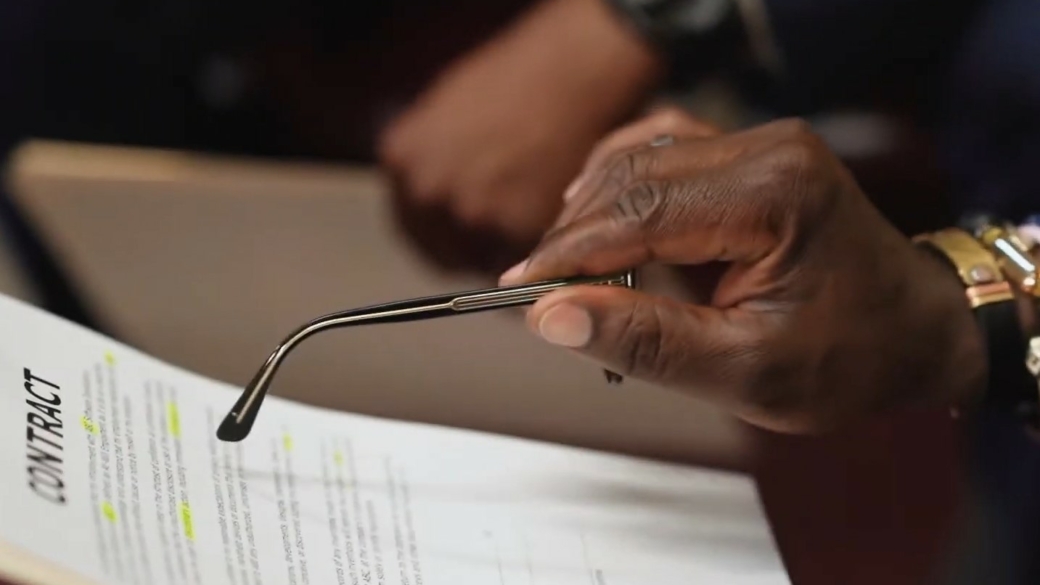Can Your Landlord Cancel a Lease Agreement
The excitement of moving into a new home often involves dealing with a stack of paperwork, which typically includes the lease agreement. A lease serves as a legally binding contract that outlines the terms and responsibilities of both tenants and landlords. It covers essential details like the monthly rent amount and the due date for payments.
But tenants may ponder: “Can landlord cancel lease after signing it?” Having clarity on this matter is essential for tenants to comprehend their rights and potential courses of action in different scenarios.
In What Scenarios Can a Landlord Cancel a Lease After Signing It?
A signed lease is a legally binding agreement that offers protection to both the landlord and the tenant. So after both parties sign a lease, a landlord usually cannot terminate it. But it’s worth noting that there could be specific terms within the lease or local regulations that permit the termination of the lease in particular situations, like when the tenant violates important lease regulations.
Landlords typically can’t terminate a lease without a valid reason. The following are scenarios where you landlord can cancel a lease agreement after signing it.
-
Tenant’s Violation
If the tenant breaches lease terms, such as non-payment of rent or causing significant damage, the landlord might have the right to terminate the lease.
-
Landlord’s Personal Need
On occasion, landlords may require the property for themselves or their families. They could be allowed to end the lease, but they usually need to provide notice to the tenant.
-
Emergencies
Unforeseen events like natural disasters can render a property uninhabitable. In such cases, the lease might be terminated because the home becomes unsafe to live in.
-
Mutual Agreement
If both the landlord and the tenant agree to end the lease early, they can do so without any problems.
Note that each state has its own lease agreement laws. For this reason, it is very important to learn first about the specific lease laws in their own states. You can do so here by just selecting your state.
Common Changes Landlords Try to Make to Lease Agreements
Landlords may occasionally wish to modify the lease after it has been signed, such as by increasing rent or introducing new regulations. This could be due to rising costs or unforeseen issues that weren’t previously addressed.
Changing the terms of a lease can be a complicated process. Changes to the rules usually require landlord and tenant approval. However, it’s important to be aware that there are legal safeguards in place to shield tenants from unwarranted alterations, which restrict landlords from implementing changes at their discretion.
When Can a Landlord Change a Lease Agreement?
Landlords must adhere to certain restrictions when revising a lease agreement. If the lease is for a year, changes must wait until renewal. In month-to-month leases, landlords must give tenants 30 days’ notice before making changes.
To protect tenants from unfair or arbitrary changes, the law requires fair and reasonable changes.
What Happens If a Tenant Breaches the Lease Agreement?
When a tenant breaches the terms of the lease agreement, such as by failing to pay rent or causing damage, the landlord is authorized to take action. A formal warning is usually given by the landlord before asking the tenant to make changes or leave.
In unresolved cases, the landlord may evict the tenant legally. Remember that the court process allows the tenant to present their case and defend it to ensure a fair resolution.
What Happens If a Landlord Breaches the Lease Agreement?
Landlords also have obligations that are similar to those of tenants. A breach occurs when a landlord does not meet their lease obligations. This can happen if the landlord neglects maintenance, such as not getting rid of roaches, or violates the tenant’s privacy.
In such circumstances, tenants may wonder about their options. Renters deserve a safe, well-kept home. If a landlord neglects their responsibilities in this regard, tenants may be within their rights to perform necessary repairs themselves and subsequently deduct the expenses from their rent. In more severe cases, tenants might even have the option to terminate the lease prematurely without incurring additional costs.
Tenants should prioritize open and clear communication with their landlord when issues arise and offer them the chance to resolve the problems. We’ve got some useful documents to help renters communicate appropriately with their landlord.
If the problems persist, tenants have the option to consult legal experts to gain a comprehensive understanding of their available options and legal rights.
Legal Protections for Tenants
Tenants are not without protection when it comes to rental agreements. Renters are protected from unfair landlord practices like unwarranted lease termination by federal, state, and local laws. According to the Fair Housing Act, landlords cannot discriminate against tenants based on race, color, national origin, religion, gender, familial status, or disability.
Moreover, state-specific laws offer additional safeguards. These laws may specify the minimum notice period required for lease termination or outline conditions that must be met for a lease to be legally terminated. To fully comprehend their rights and protections, tenants should acquaint themselves with tenant-landlord laws particular to their state or locality.
Tenants can seek guidance and information on their legal rights and recourse options in the event of lease disputes or termination through local tenant unions and online legal resources. These resources serve as valuable avenues for tenants to access the knowledge and assistance they need.
Dealing with Evictions
Evictions are legal procedures landlords use to remove tenants for lease violations. But the eviction process is not random or quick; it is based on laws that are meant to be fair. These laws provide tenants with notice and an opportunity to address lease violations when applicable.
After receiving an eviction notice, tenants should carefully review the grounds and time-frame to respond or vacate. Tenants should be aware of their right to defend themselves in court when faced with an eviction action.
To navigate the eviction process effectively and protect their rights, tenants can seek legal counsel. Legal experts can provide guidance, ensuring that tenants are given a fair chance to present their case. It’s essential for tenants facing eviction to act promptly, follow legal timelines and procedures, and explore available resources and legal avenues.
Conclusion
Lease terms must be understood by landlords and tenants to set expectations and ensure fairness. Generally, leases cannot be terminated without a valid reason, and both parties must adhere to the lease terms.
In cases where issues or questions arise regarding the lease, open communication is key. Working together and seeking legal advice can solve problems. Knowledge of rights and respect for roles can improve the rental experience for everyone. But remember that state lease laws vary, so when dealing with lease agreements, it is important to keep these differences in mind.


